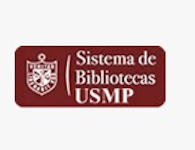Placental genome and maternal-placental genetic interactions: a genome-wide and candidate gene association study of placental abruption

Ver/
Trabajo
(application/pdf: 568.7Kb)
(application/pdf: 568.7Kb)
Fecha
2014-12-30Autor(es)
Denis, Marie
Enquobahrie, Daniel A.
Tadesse, Mahlet G.
Gelaye, Bizu
Sanchez, Sixto E.
Salazar, Manuel
Ananth, Cande V.
Williams, Michelle A.
Metadatos
Mostrar el registro completo del ítemResumen
While available evidence supports the role of genetics in the pathogenesis of placental abruption (PA), PA-related placental genome variations and maternal-placental genetic interactions have not been investigated. Maternal blood and placental samples collected from participants in the Peruvian Abruptio Placentae Epidemiology study were genotyped using Illumina’s Cardio-Metabochip platform. We examined 118,782 genome-wide SNPs and 333 SNPs in 32 candidate genes from mitochondrial biogenesis and oxidative phosphorylation pathways in placental DNA from 280 PA cases and 244 controls. We assessed maternal-placental interactions in the candidate gene SNPS and two imprinted regions (IGF2/H19 and C19MC). Univariate and penalized logistic regression models were fit to estimate odds ratios. We examined the combined effect of multiple SNPs on PA risk using weighted genetic risk scores (WGRS) with repeated ten-fold cross-validations. A multinomial model was used to investigate maternal-placental genetic interactions. In placental genome-wide and candidate gene analyses, no SNP was significant after false discovery rate correction. The top genome-wide association study (GWAS) hits were rs544201, rs1484464 (CTNNA2), rs4149570 (TNFRSF1A) and rs13055470 (ZNRF3) (p-values: 1.11e-05 to 3.54e-05). The top 200 SNPs of the GWAS overrepresented genes involved in cell cycle, growth and proliferation. The top candidate gene hits were rs16949118 (COX10) and rs7609948 (THRB) (p-values: 6.00e-03 and 8.19e-03). Participants in the highest quartile of WGRS based on cross-validations using SNPs selected from the GWAS and candidate gene analyses had a 8.40-fold (95% CI: 5.8–12.56) and a 4.46-fold (95% CI: 2.94–6.72) higher odds of PA compared to participants in the lowest quartile. We found maternal-placental genetic interactions on PA risk for two SNPs in PPARG (chr3∶12313450 and chr3∶12412978) and maternal imprinting effects for multiple SNPs in the C19MC and IGF2/H19 regions. Variations in the placental genome and interactions between maternal-placental genetic variations may contribute to PA risk. Larger studies may help advance our understanding of PA pathogenesis.
Colecciones
- Artículos [274]
Editor
Plos
Acceso
info:eu-repo/semantics/openAccess
Financiamiento
National Institutes of Health, the Eunice Kennedy Shriver National Institute of Child Health and Human Development (R01HD059827).
National Heart Lung and Blood Institute (K01HL10374).







